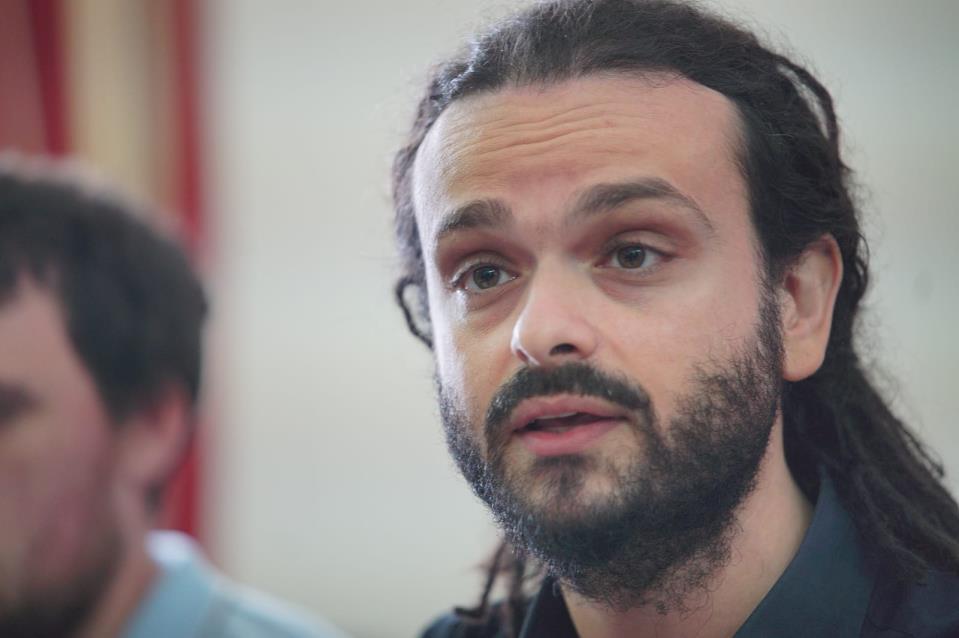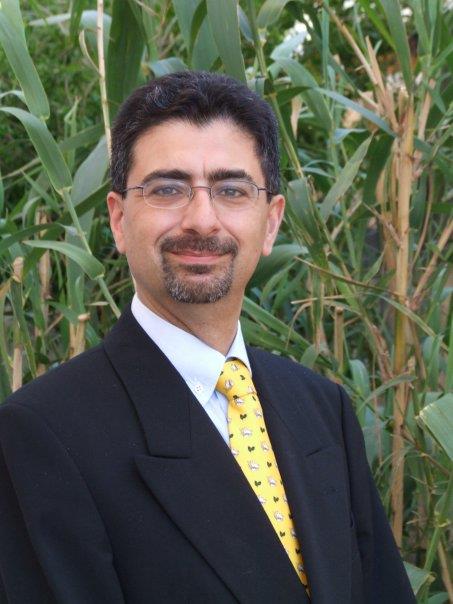Environmental NGOs have a number of ideas as to how they would improve the Environment and Resources Authority (ERA), from granting it a veto on planning decisions, to changing how board members are appointed.
The Environment and Resources Authority has been criticised in the past for being weaker than the Planning Authority and not having a strong enough say when it comes to planning decisions. The Malta Independent asked a number of eNGOs what they would do to strengthen and improve the ERA.

Moviment Graffiti wants to increase ERA representation on planning boards
Andre Callus, from Moviment Graffiti, said that there are two main issues with the ERA that need to be tackled.
"The first issue is with how it operates, as it would be pointless giving it more power if it does not operate well," he said, highlighting concerns with how the ERA Chairman has voted on certain projects in the past, and also over how the ERA has issued certain permits.
"The ERA needs to undergo a reform, which would be a part of wider reforms over how such entities operate." He said that the people appointed to authorities that issue permits should not be appointed by a minister. "There should be a call for applications, and they should pass through a Parliamentary process where needed. For example, the chairperson and board members should pass through a Parliamentary grilling, and they should also require Parliamentary approval."
"We also need clear criteria in terms of requirements for such posts and the applicants’ records in the field."
The second point regards the ERA’s powers. "Currently, the main Planning Authority board and the Planning Commission boards can ignore what the ERA says, without any consequences and without being required to issue any justification for such action. So even when the ERA recommends that an application should not be approved, the boards can ignore what the ERA says. This needs to change. There should be two ERA representatives sitting on the main Planning Authority board that deals with major planning applications, so they would have two votes. These two members would need to base their votes not on their personal opinion, but on what would have emerged from the studies conducted by a more serious ERA than the one we presently have."
"There must also be an ERA representative, with a vote, on the Planning Commission for Outside Development Zone and Urban Conservation Area applications and also one on the Planning Commission for Regularisation Permissions.”
In addition, he said, when the board or commission intends to go against the ERA's recommendation on a project, "the board or commission should be made to issue a detailed report which would state why they would be going against said recommendation. The ERA should then have the right to reply to it, with the final vote being taken after this process."
Asked whether he supports the idea of the ERA being given a veto on planning decisions, he said that the problem with this is the way the authority's members are appointed and the way it works. “This could just end up being a rubber-stamping authority as if it would not veto a project, people would be under the impression that a project would be ok when it might not be. So the other issues need to be fixed first before moving towards this idea.”

Nature Trust Malta highlights need for more enforcement
The ERA should have a stronger, more executive role within the Planning Authority when it comes to decisions being taken, Vincent Attard, Executive President of Nature Trust Malta, said.
"We keep seeing projects being approved outside the development zone, as well as projects which sometimes go against environmental regulations. We sometimes get the feeling that the ERA is being bulldozed over, or that the ERA is made to comply with the projects other authorities are trying to pass through."
"We believe that the ERA should have the ability to veto a project proposal. If a project is set to be developed outside the development zone (ODZ) then I believe it should have such a right."
Another important aspect that needs to be addressed is environmental law enforcement, Attard said. "We have many environmental laws in Malta and if we were to properly enforce them all, then we would likely be one of the best countries in this regard in the EU. However, the laws are made but just kept on paper and there is very little enforcement," he said, mentioning enforcement when it comes to illegal development and pollution as examples.
"Even when we, as NGOs, file a report, it can take long for action to be taken, that is if any action is taken, to try and improve the situation."

ERA doing a good job, but they need more power - DLH
Din L-Art Helwa's Executive President Alex Torpiano said that the ERA is doing a good job in difficult circumstances. "They need to have more power. For example, they should have the ability to veto planning applications outside the development zone, as sometimes their advice is ignored when it comes to planning decisions. Otherwise, I think they are doing quite a good job in the circumstances."
Asked to elaborate on what circumstances he is referring to, he said that Malta does not have a strong tradition for such an organisation. "Sometimes it is difficult, as you are changing the way things used to be done. I believe that the focus of the authority is right, but I only hope that that they are given more resources and that their advice is more carefully listened to

Friends of the Earth suggests that NGOs appoint 50% of planning board members
Martin Galea De Giovanni, the Chairperson of Friends of the Earth Malta, proposed that all Planning Authority Boards, ERA Boards and the Environment and Planning Review Tribunal should have 50% of their members appointed by NGOs.
“Although one must admit that there have been slight improvements compared to the dismal reputation of MEPA, with the balance firmly stuck on the side of planning, we believe that the ERA still doesn't have the necessary clout to safeguard our natural environment and open spaces.”
“As FoE Malta, we regularly work and collaborate with ERA officials and we believe that most are genuinely working towards a better environment, but we then often see incongruence between the conclusions of the experts and the outcome of the decisions taken at a higher level.”
FOE Malta proposed that all ERA and PA boards and also appeals bodies should have 50% of their members appointed by NGOs. The NGO also proposed the end of the government/opposition appointed members on such boards.
“We also find that the lack of a professional body and/or register that regulates environmental experts and consultants currently creates ambiguous situations and clear conflicts of interest. This body could be based on similar setups already catering for other professional bodies.”
The eNGO also recommended that the ERA should be given veto rights, “especially when it comes to planning decisions on projects based outside the development zone and in other sensitive areas.”

FAA highlights energy targets and ERA’s duties
Flimkien għal Ambjent Aħjar’s (FAA) Chairman Jorg Sicot said that Malta's environment, its quality of life and the health of its residents will only really improve once the ERA has an equal say in planning issues as the Planning Authority currently does.
“ERA must have the deciding vote on any application that involves an unbuilt, green site, even if they are not outside of the development zone. Sites such as Manoel Island, Valley Road in Msida, and Razzett l-Antik in Fgura are even more essential than ODZ sites, as they support distinct ecosystems in urban areas. The World Health Organisation has established that in order to maintain mental and physical health, residents need a green area within walking distance.”
Flimkien għal Ambjent Aħjar (FAA) urged the ERA to issue the revised Tree Protection Act immediately, “to provide real protection for Malta's mature trees. The Act was re-drafted in 2013 but this was never implemented. Apart from reducing traffic, trees are the only way to reduce air pollution which contributes to cancer, heart conditions, pulmonary problems, strokes and dementia.”
FAA questioned whether ERA’s experts have been permitted, and given the resources, to carry out their duties as the authority responsible for ensuring that Malta reaches its EU requirements. “Malta stands out in the EU as having missed emissions targets since 2013. According to the European Environment Agency (EEA) report, Malta is one of four Member States to have actually increased emissions in the building sector in the last 13 years, and one of three countries which increased emissions in excess of 50% in the ‘industry and other’ sector.”
“In 2018, Malta’s total share of energy generated through green sources was only 7.7%, sending Malta to the bottom of EU green energy ratings. By 2020, Malta was to generate 10% of energy through renewables, while the target for the EU is 20% from renewable sources by 2020 and at least 32% by 2030. Current measures promoting the installation of solar panels have increased Malta's use of alternative energy, but FAA maintains that recent proposals for solar farms to be constructed on agricultural and garigue land would be counter-productive.”
He said that Malta's increased demand for energy, spurred by its growth in population and tourism, was “exacerbated by the authorities' failure to enforce EU Minimum Energy Efficiency Requirements (MEER) in new buildings.”
"Malta’s failure to meet basic targets set down by the EEA reflects that the environment is not a government priority, and that this failure comes at a very high cost to the Maltese taxpayer."